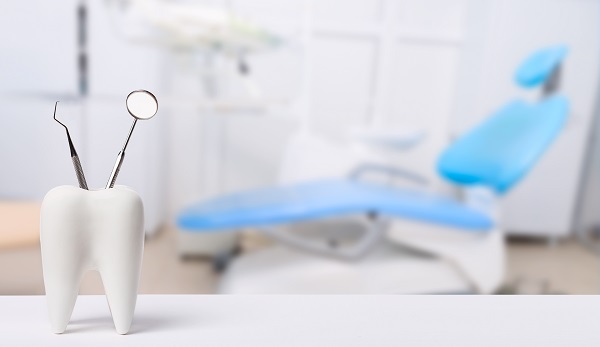Dental Office Staff and Personal Protective Equipment Per CDC Guidance During COVID-19

Personal protective equipment can help to keep dentists and their employees safe during the COVID-19 pandemic. Dentists and their staff continue to provide services for patients who are dealing with dental emergencies that increases their risk of being infected by the coronavirus.
Tools used by dentists, like ultrasonic scalers and air-water injections, create aerosols that can contain microorganisms, like COVID-19. The use of personal protective equipment, like face masks and shields, helps to protect patients from these aerosols.
How personal protective equipment keeps dental workers safe during COVID-19
One of the biggest challenges of battling the COVID-19 virus is the fact that it is highly contagious even when the carrier is not showing any symptoms. It is mainly transferred via infected airborne droplets, and it can also be transmitted via infected surfaces. The coronavirus remains active on surfaces for over two days.
Here are some of the guidelines the Centers for Disease Control has created to help dentists and their staff to protect themselves as they continue to provide emergency care:
- Patients should be screened for symptoms of the coronavirus before their appointments. Those with flu-like symptoms will be advised to come in three days after their symptoms have subsided.
- Dentists should mainly be providing treatments to patients who do not have symptoms of COVID-19, and these treatments will be performed while wearing protective gear.
- Non-emergency treatments that are already scheduled should be canceled.
- Dentists should only treat patients they suspect are infected with the COVID-19 virus if they have proper infection control equipment and training. This includes N95 masks or better, protective goggles or a face shield, plus disposable gloves and gowns.
- Teledentistry can be used to treat dental emergencies that do not require the dentist to perform treatments. For example, a minor infection can be diagnosed over video chat, and the dentist can write a prescription for antibiotics without ever meeting the patient.
- Patients should be provided with face masks when they check-in at the clinic.
- Patients should be asked to wash their hands and clean their mouth with an antibacterial mouthwash.
- Clinics will space out appointments to promote social distancing in waiting rooms.
- Treatments that do not create aerosols will be prioritized.
- Dentists should keep the number of staff members working on each patient to a minimum.
- Staff members should be regularly screened for COVID-19.
- A rubber dam and a high-volume evacuator should be used during treatments that create aerosols.
- Dentists will try to provide all necessary information in the procedure room so the patient does not need to stop at the front desk.
- After the procedure, patients should be advised to quarantine themselves.
- Operating rooms and waiting rooms should be cleaned and sanitized regularly. Items that are difficult to sanitize, like magazines, should be removed.
- Dental staff should remove PPE and disinfect themselves after working with a patient.
Get the care you need
Our Visalia clinic remains open to those who need emergency dental care and we adhere to the CDC's guidelines. Call us to schedule an appointment.
Request an appointment here: https://www.dentistofvisalia.com or call Visalia Care Dental at (559) 975-1213 for an appointment in our Visalia office.
Check out what others are saying about our services on Yelp: Read our Yelp reviews.
Related Posts
A dental inlay is one of several restorative options available to repair damaged teeth and preserve oral health. When decay, fractures, or wear compromise the strength or structure of a tooth, dentists consider the severity and location of the damage to determine the most appropriate treatment. Understanding the differences between a dental inlay, onlay, filling,…
Preventative dental care refers to all the ways you can maintain the health of your teeth and gums, which will ultimately help prevent more severe issues down the road. One great way to provide this type of care is through treatments, including scaling and root planing, periodontal therapy, and laser gum surgery. The following are…
Preventative dental care has long been the focus of dentists and patients alike. Taking proactive steps to protect your teeth and gums not only helps you prevent tooth decay and gum disease but can also decrease your risk of developing other illnesses such as heart disease, stroke, cancer, and diabetes. Here’s how oral health affects…
The most effective way to prevent tooth decay is with preventative dental care. Everyone wants to maintain a healthy white smile for a lifetime. Your smile is your first impression and a great way to show confidence. Keeping that smile can be very easy if you follow a few easy steps.Tooth decay causes gum disease,…
